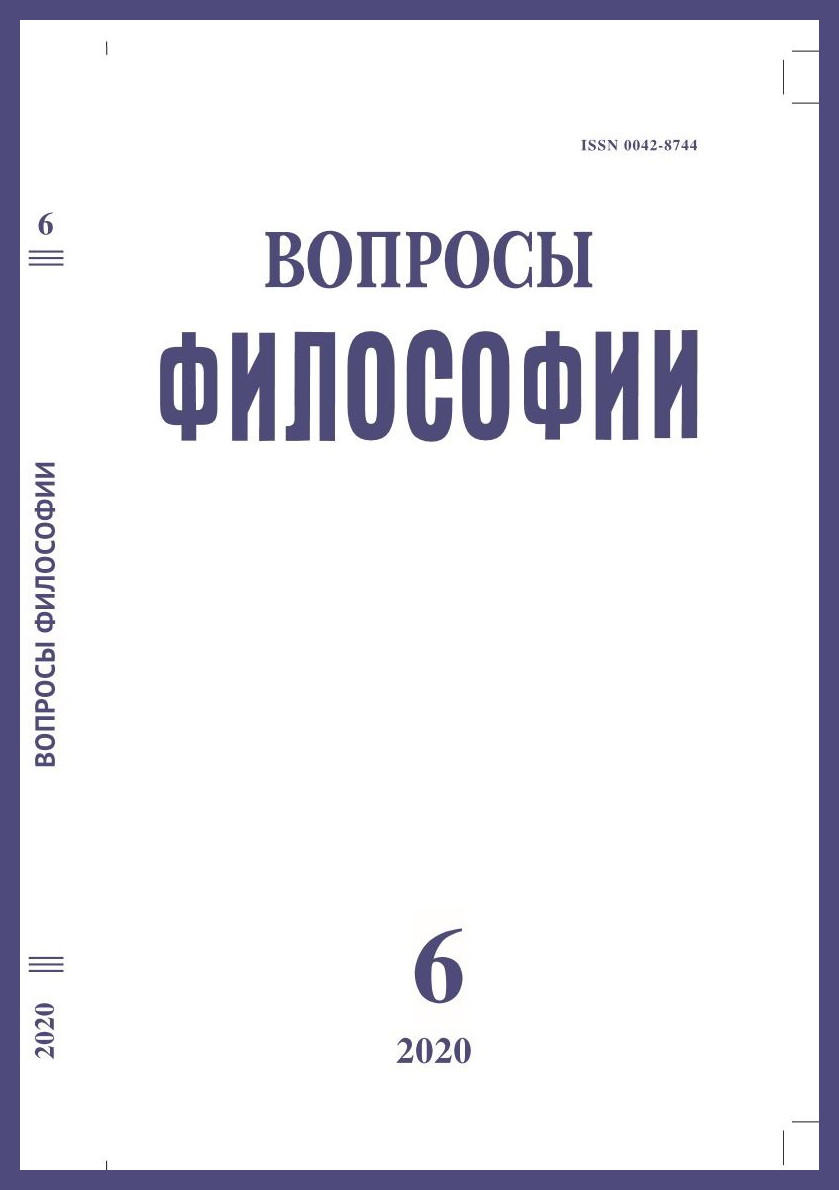From the “Logic of Meaning” to the Fates of Russia (Reflection on the Book of A.V. Smirnov Vsechelovecheskoye vs. obshchechelovecheskoye*)
DOI:
https://doi.org/10.21146/0042-8744-2020-6-201-213Keywords:
epistemology, logic, civilization, culture, rationality, history of Russia, Russian eurasianism.Abstract
The plot of the book is formed by two problem knots. The first of them is weaved out of questions of the logical bases of various civilizations and opportunities of rational contact dialogue between them. Discussion of these questions leads to a conclusion that rational mutual understanding between civilizations is possible irrespective of the fact which logics prevail in each of them. Rationality does not reduce to logical rules as well as the reason is not exhausted by logic. It includes a reflection over the ontological assumptions which are the cornerstone of language, creative imagination, the principles of practice. Also reflections over worldview intuitions are within its competence. Modern rationalism breaks off with apriority of criteria of rationality, but recognizes a variety of fundamental forms of rationality. The future of mankind in many respects depends on whether it will manage to keep this variety, without reconciling with inevitability of the clash of civilizations. The second knot – some questions of the special Russian civilization possessing own logic of “vsechelovecheskoye”, distinguishing it from the “western” civilization which applies for the “obshchechelovecheskoye” in nature of the principles. The author of the book tries to answer these questions, developing the ideas of N.Y. Danilevsky and Russian “Eurasians”. However it is impossible to tell that he manages to resolve the contradictions internally inherent in these ideas. More likely, its developments can serve as an incentive for further judgment of historical ways of Russia. There is also open a question of communication of the mentioned problem knots: how from discussion of epistemological problems to pass to the analysis of the principles which lie in the basis of regional and world civilizations?

